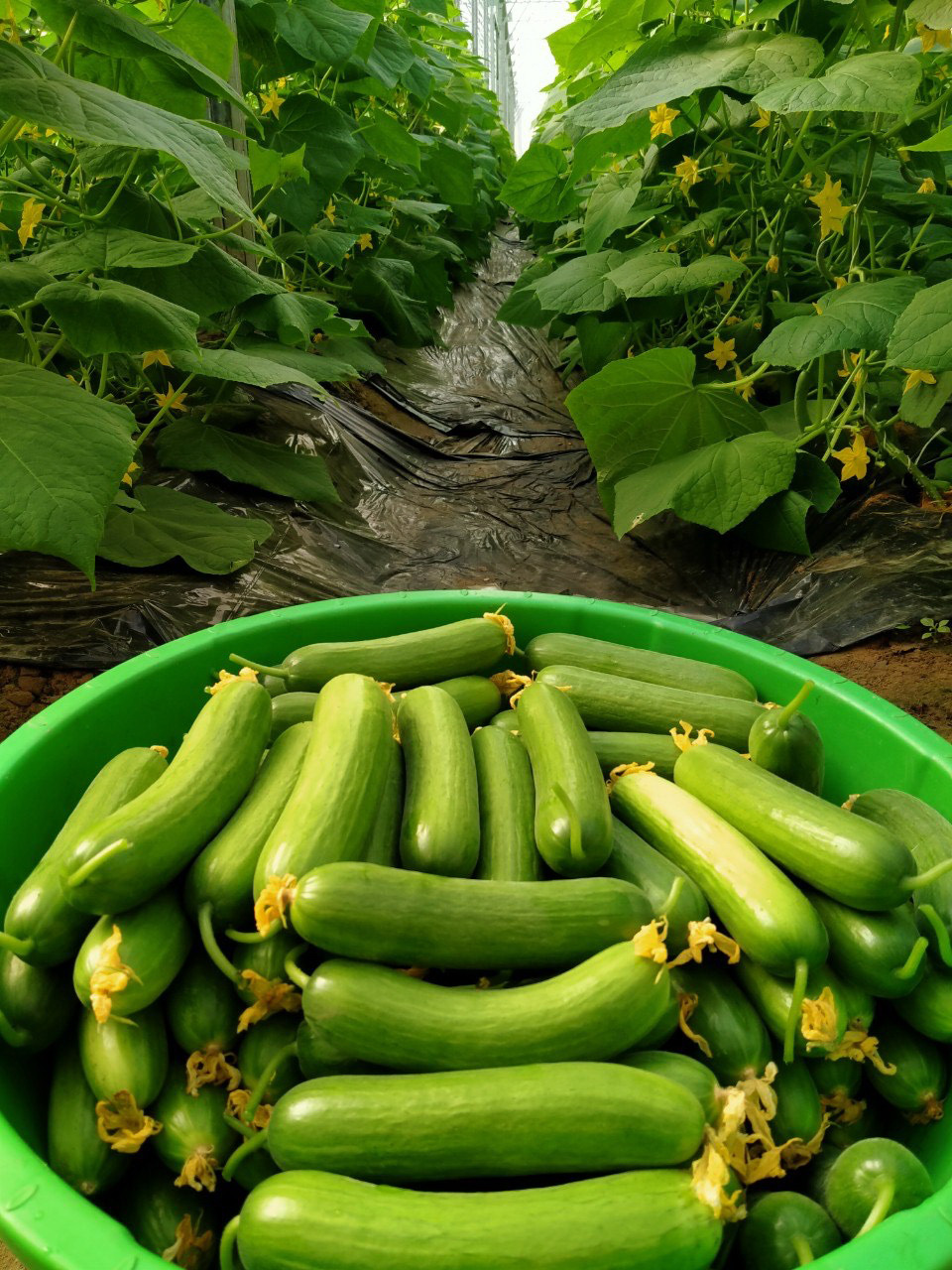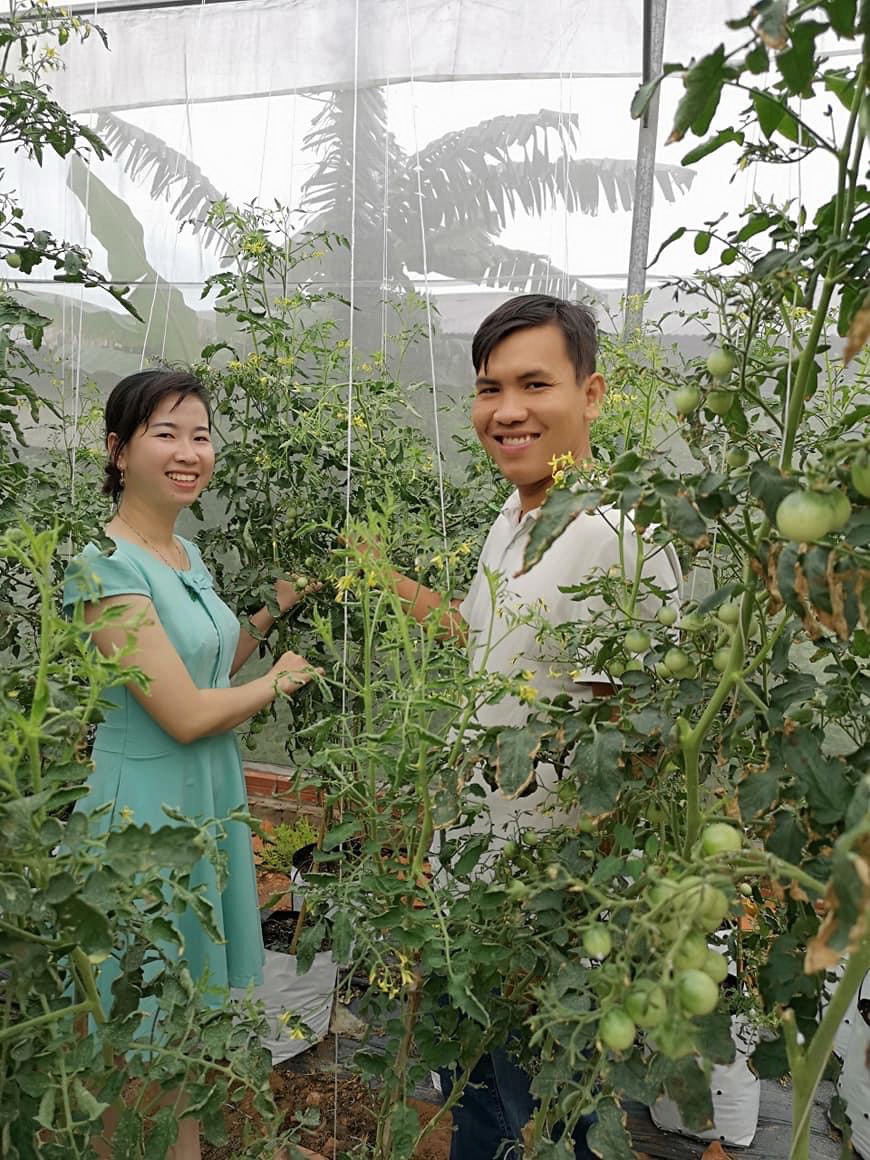30-year-old Huynh Phu Loc, a food technology engineer, aims to have more net houses built all over the Mekong Delta of Vietnam. He plans to pass down the technology to local farmers and plantation owners, believing that with benefits outweighing costs, net houses can facilitate clean agriculture.
The former lab technician now travels widely the many provinces of Vietnam’s Mekong Delta, consulting net house construction and clean agricultural practices.
A net house is a form of confined agricultural space that aims to reduce damage by insects, wind and hail.
“I want to devote my youth and knowledge to helping people in my hometown,” Loc said.
“High-tech and clean agriculture is inevitable now that consumers are increasingly health-conscious.”
His three years of hard work has borne fruits — not the ‘money trees’ in his net houses, but the joy of working side by side with local farmers.
Technology is the best policy
Loc’s net house is located in the center of the bustling Vinh Long City, the capital of the namesake Mekong Delta province. It attracts a large number of weekly visitors.
Putting quality and customers’ confidence first, he has provided in-plantation tours in recent years.
Modern technology is installed in his plantations, with a long-distance watering system in place, providing information on both humidity and lighting conditions.
According to Loc, applications on smart devices allow him to take care of his plantation with the least efforts.
“It is so relaxing to do agriculture with technology, and it’s easy to monitor pathogens too,” he explained.
“This way, productivity is quite high and we gain more profits than doing it the traditional way.”
For the last three years, there has not been a single customer complaint about his products, which have a high consumption rate thanks to their consistent quality.
“My produce mainly make their way into supermarkets and clean produce stores. The prices here might be higher, but there is no bargaining,” Loc said.
“Buyers tend to come back for my products.”
The high-tech farmer conducts annual pilot tests of new varieties of plants to see whether the soil and weather of the Mekong Delta are suitable.
If results turn out positive, he proceeds to mass production.
 |
| Cucumbers grown in net houses provide outstanding productivity. Harvested cucumbers at a net house by Huynh Phu Loc (unseen) in the Mekong Delta region of Vietnam are seen in this supplied photo. |
Net houses
When he was still working at the lab, he had multiple field trips to nearby provinces where he got to witness cultivating methods at work.
Near the end of 2017, the man decided to build his own net house, with funding accumulated from earlier years in the laboratory.
He invested all of his financial resources into an over 1,500 square meter net house, with a drip irrigation system installed.
He acknowledged that it was a risky move, but he was confident as consumers preferred clean produce.
His first crop was more than 2,500 Holland tomato plants. However, it was so productive at four kilograms of tomatoes for every plant that he found it quite a challenge to find the output for his ten metric tons of produce.
His tomatoes were sold at around VND35,000-40,000 (US$1.50-1.71), much higher than regular tomatoes, so open markets were not the place to go.
“We had to target supermarkets and convenience stores,” he told himself.
To gain credibility, the man took his tomatoes to a lab test. With hard evidence of ‘cleanness,’ his produce soon found a stable market.
His later crops of Black Russian tomatoes also yielded positive outcomes. Then, he moved on to melons.
“Melons can help to kill tomato pathogens after its many crops. Also, I can grow four crops of melons a year,” he said.
On average, a crop of over one square kilometer of melons can bring back VND100 million ($4,300), quite a dream earning for local farmers who are used to the open fields.
With that in mind, Loc has invested three more net houses in Cho Moi District in An Giang Province.
Going clean with local farmers
The cost of net houses, according to Loc, can amount to thousands of U.S. dollars. Not everyone, therefore, is willing to take the risk.
“If you want people to go high-tech, you have to show them the results and help them rest assured of their produce,” he explained.
Through his friend’s recommendation, Phan Nhut Thanh from Tam Binh District, Vinh Long Province approached Loc for help with his net house endeavor on an area of 1.5 square kilometers.
According to Thanh, his income became more stable than ever after only two crops of melons and baby cucumbers.
“Loc was so enthusiastic in his instruction. He even recommended an outlet to me,” he said.
“Doing it the traditional way was so tiring while the money was tiny. The net house is both safer and more economically stable.”
According to Loc, it was his passion for applied technology in agriculture and concern for clean produce that drove him to become a farmer. Also, he wanted to do something for himself.
“It is not hard to sell the produce. It simply takes devotion and a good heart,” he said.
Like us on Facebook or follow us on Twitter to get the latest news about Vietnam!


















































